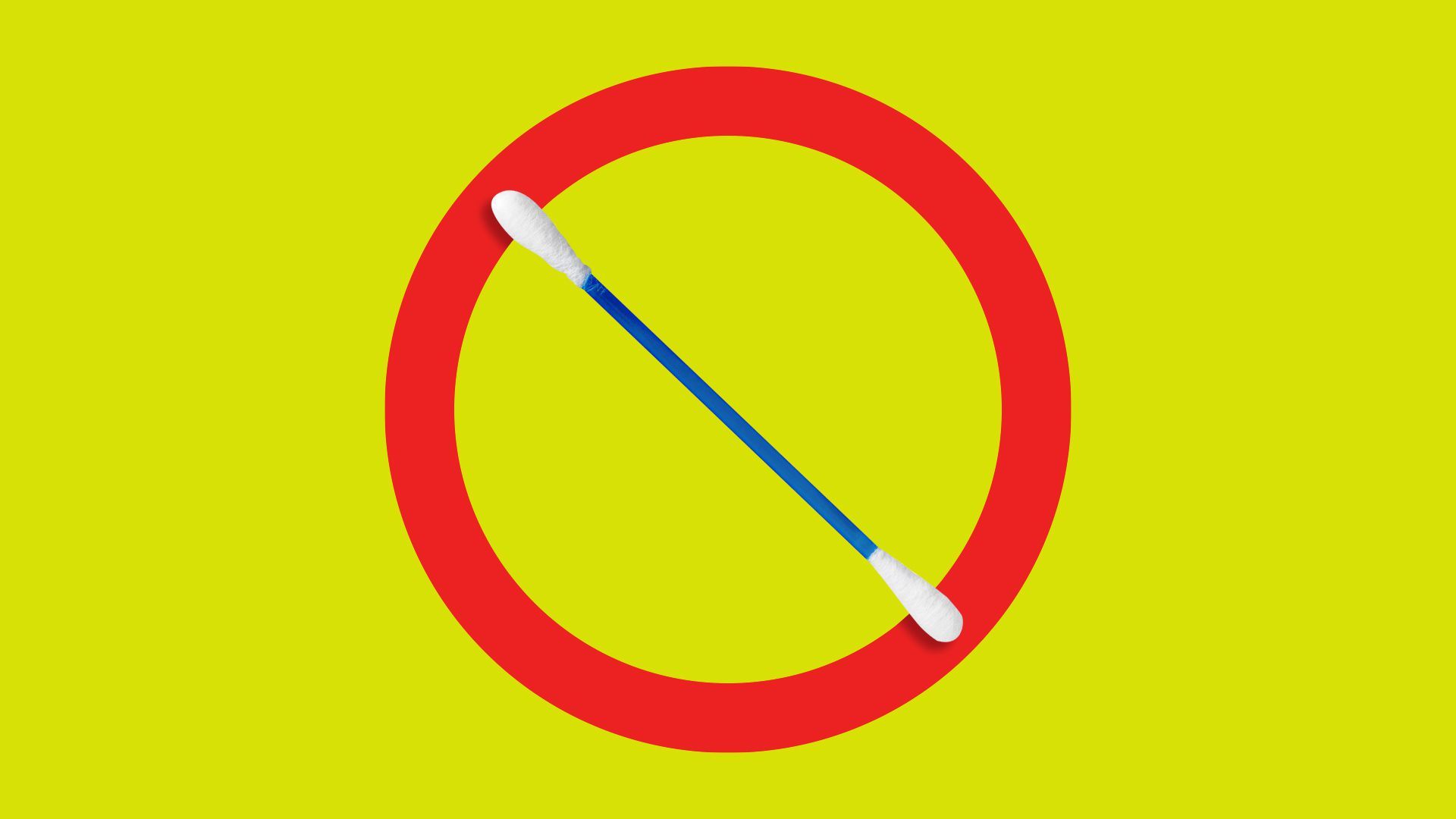Why we're still waiting for rapid, at-home COVID tests
Add Axios as your preferred source to
see more of our stories on Google.

Illustration: Aïda Amer/Axios
Rapid at-home COVID-19 tests are fast, but the regulatory approval needed to get them in the hands of Americans has been slow to come.
Why it matters: Quick, fully at-home COVID-19 tests could make a vital contribution to stemming the pandemic — and open up a new frontier for more constant disease surveillance — but old assumptions about how diagnostics should be used are holding them back.
Driving the news: On Wednesday, the Biden administration unveiled a $1.6 billion plan to accelerate COVID-19 testing in schools and other settings, bolster the supply chains for testing materials, and enhance genetic sequencing surveillance.
- "We still don’t have enough testing, and we don’t have enough testing in all the places it needs to be," Biden testing coordinator Carole Johnson told reporters.
By the numbers: The number of COVID-19 tests carried out per day in the U.S. has dropped by roughly 30% from the peak a month ago.
- The U.S. has carried out around 340 million tests in total — a little more than one per person over the nearly year-long pandemic.
Some of that dip is likely due to declining case numbers. But to advocates of rapid at-home tests, the drop also points to problems in how we use tests — and the kind of tests that have been approved.
- COVID-19 tests have mostly been used for the purposes of diagnosing people who may be sick, and most of the tests that have been approved employ highly accurate but often labor-intensive PCR methods that require people to travel to clinics.
- The logistics and costs of manufacturing and running mass amounts of PCR tests make it difficult to constantly screen the population — which is precisely how cheaper, rapid at-home COVID-19 tests could be employed.
Context: Pasadena, California-based Innova produces COVID-19 tests that cost less than $5 and work with the ease of an at-home pregnancy test, yielding results in 15–30 minutes.
- For months, Innova has been sending millions of these tests to the U.K., where they have been used as part of Prime Minister Boris Johnson's "moonshot" mass testing program. Innova CEO Daniel Elliott says the company can currently make 15 million test kits per day, with plans to expand to 50 million a day by the summer.
- But Innova's rapid test — which was first submitted to the FDA for approval in August — has yet to receive the emergency use authorization (EUA) needed for wide distribution, a status it shares with many other fully at-home rapid tests, like one developed by Gauss and Cellex that uses a smartphone to interpret results.
- "The FDA has been a bit of a challenge," says Elliott. "We're accustomed to looking at tests as having to be almost lab-grade, and there's just not as much experience in a kind of test this broad that's useful for different purposes."
How it works: Rapid tests like Innova's search for a specific viral protein called an antigen.
- Antigen tests are less accurate than PCR. A study by Innova found its test correctly identified 78.8% of cases in a group of 198 samples compared to lab-based PCR results, a lower rate that can result in more false positives and negatives.
- But advocates of rapid testing say the tests are especially good at identifying people who are at the contagious state of their illness.
- That, combined with their superior capacity to frequently test large numbers of people, makes them a "public health tool to suppress the outbreaks," according to Michael Mina, an epidemiologist at the Harvard T.H. Chan School of Public Health.
What they're saying: "We consider tests for at-home use to be a top priority,” Jeffrey Shuren, a top FDA official overseeing testing, told The Hill recently. “And if they've got their data and the data looks good, we authorize."
- The FDA recently granted an EUA to a fully at-home test produced by Ellume that reported highly accurate results, though with a potential price of $30 or less, it would cost more to scale up.
The other side: Some experts — including from the U.K., where rapid testing is more widespread — worry that ordinary people would misread the tests, further eroding their accuracy, and that it would give them a false sense of security.
- But similar fears raised when home pregnancy tests were first made available never materialized, and advocates believe rapid screening could be used to "leverage this technology for other at-home tests in the future," according to Gauss CEO Siddarth Satish.
The bottom line: The U.S. health system is set up to provide the highest-quality care — often at equally high prices — but COVID-19 testing is one area where fast and cheap may be the right approach in a true emergency.
